
Staff
Academic Staff

Prof Dimitrios Pezaros
Dimitrios Pezaros is (full) Professor of Computer Networks in the School of Computing Science at the University of Glasgow where he currently holds the Dstl & CINIF / RAEng Research Chair in Digital Resilience for Critical National Infrastructure. He was the Head of the Glasgow Systems Section (GLASS) between 2019-2023, and is the founding director of the Networked Systems Research Laboratory (netlab), and director of the Cyberdefence laboratory at Glasgow. Prof Pezaros has published widely and is leading research in computer communications, network and service management, and resilience of future virtualised networked infrastructures, exploring technologies such as Software-Defined Networking (SDN) and Network Function Virtualization (NFV).
He has received significant funding for his research by various fudning agencies (e.g., EPSRC, EC, RAEng, MOD, US FAA) and industry (incl. BT, EDF, ans NXP).
He was a visiting professor at the University of Athens, Department of Informatics and Telecommunications (2019), and he currently serves as Associate Editor on the editorial board of IEEE Transactions on Network and Service Management. He holds BSc (Hons.) and PhD degrees in Computer Science from Lancaster University, and has been a doctoral fellow of Agilent Technologies Inc. between 2000 and 2004. Prof Pezaros is a chartered engineer, a fellow of the BCS and the IET, a fellow of the HEA, and a senior member of the IEEE and the ACM.

Dr Awais Aziz Shah
Awais Aziz Shah is working as a lecturer in the school of computing science at the University of Glasgow. He is a member of the Glasgow Systems Section (GLASS). His research is focused towards using Network Programmability and Resilience using Software-Defined Networks (SDN), Network Function Virtualisation (NFV) and virtualisation technologies such as containers to virtualise the modern network infrastructures in achieving low-latency, energy efficiency, Quality of Service (QoS), and optimal Virtual Network Functions (VNF) chain deployments. He is also working on detecting threats to the Critical Infrastructures (CI) such as Industrial Control Systems (ICS) and Smart Grids using Machine Learning techniques.
During his PhD at the Telematics Lab, Politecnico di Bari, Italy, he developed an SDN-based hierarchical framework for the orchestration and management of VNFs in Optical Transport Networks. Through this work, in collaboration with industrial partners from Telco industry in Italy (SMOptics and Experis), he simulated large-scale optical nodes been monitored by multiple levels of SDN controllers and centeralised network service orchestrator inside the OpenStack Cloud. Furthermore, he have worked on developing a routing strategy for Transport Networks using SDN to ensure energy efficiency and at the same time QoS. Moreover, he has served as a Research Fellow from December 2021 to September 2022 in the Communication, Sensing and Imaging group on several use cases under the umbrella of Scotland 5G testbed that includes orchestration of services on the 5G testbed using SDN and Internet of Things frameworks.
Researchers
Dr Marco Cook
Marco is currently a final year PhD student funded through an EPSRC iCASE studentship, supported by the Defence Science and Technology Laboratory (Dstl). He works on the intersection of anomaly detection and digital forensics within industrial control systems (ICS), and is currently exploring data provenance and fingerprinting to enable attack detection for programmable logic controllers (PLCs).
Research Students

Haruna Adoga
Haruna Adoga is a PhD student at the School of Computing Science, University of Glasgow. He holds a bachelor's degree in Electrical and Electronics Engineering from the University of Maiduguri, Nigeria (2009), and a Masters's degree in Computer Science from the University of Hertfordshire, UK (2016).
His research interests are Software Defined Networking (SDN), Edge Computing, Network Function Virtualization (NFV), Future Networks, and Network Management.
Ghadeer Alsharif
Ghadeer Alsharif is currently a PhD student at the School of Computing Science, University of Glasgow. She obtained her M.Sc. degree in Information Technology from the Faculty of Computing and Information Technology, King Abdulaziz University, in 2019. her research interests include network security, Internet of Things (IoT), Software-defined Networks (SDN) and Network Function Virtualization (NFV).
Kelsey Collington
Kelsey Collington is a second year PhD student in Computer Science at the University of Glasgow. The working title of her PhD is ‘Organisational Resilience in Nuclear Industries’. She is interested in enabling resilience through improving the integration of technology, specifically anomaly detection systems for ICS, into organisations. Increasing the ‘explainability’ of technology, through considering how it interacts with people and processes, is expected to aid this integration in part by increasing the users trust in the technology.
Teodor Karkashina
Master’s degree in informatics from University of Peiraeus and currently a PhD student at the School of Computing Science, University of Glasgow.
Research interests are in the areas of Software Defined Networking (SDN) and dataplane programmability.
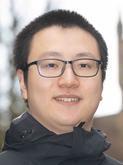
Xicheng Li
Xicheng Li is a second-year PhD student in the School of Computing Science at the University of Glasgow. His research interests are software-defined networks, network function virtualisation and related in-network computing areas.
The current working projects are taming the heterogeneity of the hybrid deployment of programmable SDN switches and leveraging state-of-the-art in-network computing techniques to empower industrial IoT applications.
Alumni
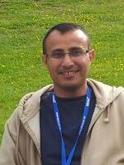
Dr Gubran Al-Kubati
Gubran graduated with a Master in Science (M.Sci) in wireless communication engineering (2007--2009) and is currently working in Systems research section. His research interestes include wireless and mobile communications, vehicular ad hoc networks, Quality of Service (QoS), and cross-layer design for wireless networks.
Dr Nouf AlHarbi
Nouf Alharbi received her B.Sc. in Computer Science at Taibah University, Saudi Arabia, with first-class honours in 2008. Since 2010, she holds the post of a lecturer with the Faculty of Computing Sciences at Taibah University. She obtained her M.Sc. degree in Computer Science from the Faculty of Computing and Information Technology, King Abdulaziz University, in 2016. She is currently pursuing her Ph.D. at the School of Computing Science, University of Glasgow, U.K. Her research interests include wireless sensor networks (WSNs), routing algorithms, optimisation techniques, industrial WSNs and industrial IoT.
Walaa Alayed
Walaa has been a PhD student working in the area of routing protocols for next generation wireless sensor networks

Dr Ibrahim Alghamdi
Ibrahim Alghamdi received his Master in Computer Science from Monmouth University in 2014 and his BS from Al-Baha University in 2009. Alghamdi has been with Al-Baha University since 2010, teaching courses in programming languages, networking, and software engineering. Currently, he is a PhD student at the University of Glasgow focusing on Resource Allocation in Cloud Computing. He is a member of the Glasgow Systems Section.
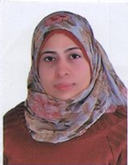
Dr Abeer Ali
Abeer has graduated her PhD (2020) on virtualised security provisioning for Cloud Data Centres.

Dr Hatem Almazarqi
Hatem Almazarqi is currently a PhD student at the School of Computing Science, University of Glasgow. He obtained his Master 's degree in Information Technology from the University of Technology Sydney (UTS) and his BS from King Abdulaziz University (KAU). His research interests are in the areas of Internet measurements, anomaly detection, cybersecurity and network security. Currently, his research work focuses on profiling of large-scale IoT-based botnets.

Dávid Balla
David Balla is a PhD candidate at the Budapest University of Technology. He is a member of High Speed Networks Laboratory (www.hsnlab.hu) at the Department of Telecommunication and Media Informatics. His main research focuses on open source Function as a Service solutions, but he is also interested in high speed data-center network solutions as well as distributed storage systems.

Dr Levente Csikor
Levente has been a research associate at the School of Computing Science, University of Glasgow working on an Engineering and Physical Sciences Research Council (EPSRC) funded project called Network Measurement as a Service between 2016 and 2017.
Previously, he received his M.Sc. and Ph.D. degree in technical informatics from the Budapest University of Technology and Economics (BME) in 2010 and 2015, respectively.
He has been a research fellow at the High Speed Networks Laboratory, Department of Telecommunications and Media Informatics, BME. Levente was involved in FP7 Unify project, as well as in several industrial projects carried on between HSN Lab and Ericcson TrafficLab Hungary (ETH) and Ericsson AB Sweden (EAB).
Recently, his interests have focused on Software-Defined Networking (SDN), and Network Function Virtualization (NFV), in particular, the dataplane performances of different software-based network functions.
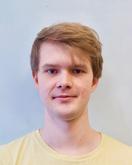
Dr Richard Cziva
Richard has been a PhD student and a Research Associate in the group. His research focused on the efficient allocation of resources in Cloud Data Centre networks through the exploitation of converged network-server resource management and Software-Defined Networking (SDN). Recently, he has also been working on Network Function Virtualisation (NFV) by developing the Glasgow Network Functions (GNF) framework.
Gregg Hamilton
Project on 'Distributed VIrtual Machine Migration for Cloud Data Centres' (MRes, 2014); now at Linn

Dr Natascha Harth
Natascha Harth is currently a PhD student at the School of Computing Science, University of Glasgow. She received her B.Sc in Business Information Technology from the Cooperated University Mannheim, Germany (2014) in cooperation with Hewlett Packard (HP). Natascha worked for HP as a Technical Consultant for Business Intelligent solutions. She was awarded a Master (MSc) in Data Science from the University of Glasgow (2016).
Her research areas are: Edge Computing, intelligent predictive modelling for Internet of Things (IoT) environments, and Stochastic Optimisation.

Dr Mircea Iordache
Mircea is an RA and PhD student at the University of Glasgow focusing on enhancing security for Software-Defined Networks.

Dr Simon Jouet
Simon was a Research Assistant and PhD student at the School of Computing Science, University of Glasgow until 2017. Now in industry.

Dr Andrzej Kamisiński
Andrzej Kamisiński is a Research Associate in the School of Computing Science at the University of Glasgow, and an Assistant Professor in the Department of Telecommunications at the AGH University of Science and Technology in Kraków, Poland. He received his B.Sc., M.Sc., and Ph.D. degrees in Telecommunications from AGH University of Science and Technology in 2012, 2013, and 2017, respectively. In 2015, he joined the QUAM Lab in the Department of Information Security and Communication Technology at NTNU (Trondheim, Norway) for four months as a Visiting Ph.D. Student, where he worked with Professor Bjarne E. Helvik and with Telenor Research on dependability of Software-Defined Networks. In summer 2018, he was a Visiting Research Fellow in the Communication Technologies group, Faculty of Computer Science, University of Vienna, collaborating with Professor Stefan Schmid on research projects related to dependability and security of communication networks. Between 2018 and 2020, he has been a member of the Management Committee of the 'Resilient Communication Services Protecting End-User Applications From Disaster-Based Failures' European COST Action. His primary research interests span dependability, programmability, and security of computer and communication networks. In addition, he has a passion for aviation, especially sailplanes and air traffic control. He is a licensed sailplane pilot and he also plays organ and piano.
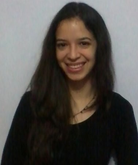
Irian Leyva Pupo
Irian Leyva-Pupo is a Research Assistant and a PhD candidate of the Universitat Politècnica de Catalunya (UPC). Received her BSc. degree in Telecommunication and Electronic Engineering from the Technological University of Havana José Antonio Echeverría (Havana, Cuba) in 2015. Currently, her research work focuses on optimization problems, 5G networks, NFV and SDN. She completed her internship in our group in 2019.

Alejandro Llorens Carrodeguas
Alejandro Llorens-Carrodeguas is a research assistant and a Ph.D. candidate at the Universitat Politècnica de Catalunya (UPC). Received his BSc. degree in Telecommunication and Electronic Engineering from the Technological University of Havana José Antonio Echeverría (Havana, Cuba). The operation and management system are his main experiences. His current research interests include NFV, SDN, Data Distribution Service, 5G networking and Machine Learning. He completed an internship in our group in 2019.
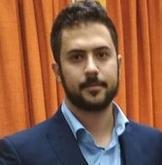
Stefanos Nikolaou
Stefanos Nikolaou was a Research Assistant in the School of Computing Science at the University of Glasgow during 2018-19. He holds a master equivalent degree in information and communication engineering from the University of the Aegean, Greece, and an MSc in Data Science from the University of Glasgow. His research interests lie in the field of bio-insired applications for Software-Defined Networking as well as in Edge Computing and predictive modeling for Internet of Things.
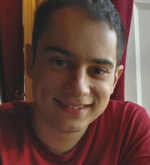
Dr Stefanos Sagkriotis
Stefanos is currently a last year PhD student funded through an EPSRC/BT iCASE studentship, researching topics in the intersection of in-network compute and orchestration. He holds a Master's degree (MSc) in Data Science from the University of Glasgow, UK (2018). He received his degree in Informatics and Telecommunications from the University of Peloponnese, Greece (2017).
More info: Scholar link, Twitter, Personal page

Alejandro Santoyo-Gonzalez
Alejandro Santoyo Gonzalez is a Research Assistant and PhD Candidate of the Universitat Politècnica de Catalunya. He previously worked as solution manager for Huawei Technologies Co., Ltd. and as a datacenter engineer with a main focus on IT infrastructure, virtualization platforms, technical support and service management. His current research interests are Edge Computing, 5G, NFV, programmable networking, optimization problems and algorithms. He completed an internship in our group in 2018.
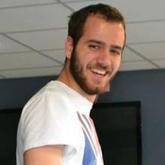
Dr Fotis Savva
Fotis Savva was a PhD candidate and a member of the Information Data and Analysis (IDA) section at the School of Computing Science at the University of Glasgow. He researched how Machine Learning can be applied in Networked Systems to alleviate some of the inherent problems in routing and traffic engineering. His expertise lies in the domains of large-scale data analytics systems and how machine learning can be applied to expedite complex query processing and data analytic tasks. His work on “Query-Driven Learning for Next Generation Predictive Modelling and Analytics” received 2nd place at the Student Research Competition at ACM SIGMOD 2019. In 2016 he was awarded an EPSRC scholarship for his PhD studies. He holds a BSc (Hons) First Class in Computer Science from the University of Glasgow (2016).

Dr Kyle Simpson
Dr. Kyle Simpson is now an Extensibility Engineer at Arista Networks – formerly a Postdoctoral Research Assistant at the University of Glasgow, supervised by Professor Dimitrios Pezaros. He wored on the intersection of programmable dataplane hardware and data-driven networking, including examining low-latency, efficient packet processing frameworks for in-situ IoT defence via the TruSDEd project.
Publications and writings are listed on Orcid.

Márk Szalay
Márk Szalay is a Ph.D. candidate at the Budapest University of Technology and Economics. He is a member of the High Speed Network Laboratory (http://hsnlab.hu/) in the Department of Telecommunications and Media Informatics. His main research interests include Software-Defined Networking, Cloud Computing, Cloud Orchestration, and Delay-Critical Services.
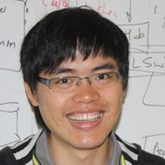
Dr Posco Tso
SICSA NGI fellow (2011-2014); now lecturer at Loughborough University.

Dr Kyle White
Kyle was a SICSA funded PhD student researching how to increase resilience and safety in Air Traffic Management communication networks and automated systems. Now in industry.

Dr Chris Williamson
Dr. Chris Williamson is a Research Associate within the James Watt School of Engineering of the University of Glasgow. Chris received his B.Eng. (with honours) and subsequent M.Eng. degrees in electrical, electronic and energy engineering from Glasgow Caledonian University, Glasgow, U.K., in 2017 and 2018, respectively. He was then awarded a Ph.D. degree in electronic and electrical engineering from the University of Strathclyde, Glasgow, U.K., in 2022. His research interests include the use of semiconductor devices to provide encryptions solutions for IoT applications and devices, utilisation of ester-based liquid dielectrics in pulsed power machines, impulse breakdown of liquid dielectrics focusing predominantly on environmentally friendly fluids, interfacial flashover of composite insulating systems and dielectric breakdown under non-standard voltage stress. Chris was a recipient of the IET award in 2017.

Dr Qianru Zhou
Qianru Zhou has been a Research Associate with the group between 2018 and 2019. Her research focus has been on knowledge base autonomic network management and in Software Defined Networking (SDN). She received her Bachelor degree in Telecommunication Engineering from Shenzhen University, Guangdong, China, in 2009, her MSc degree in Optical Engineering from Beijing University of Posts and Telecommunications, Beijing, China, in 2013, and her PhD from Heriot-Watt University, Edinburgh, UK in 2018. She has also worked as a System Programmer in Sanmina, Shenzhen, China, in 2014.